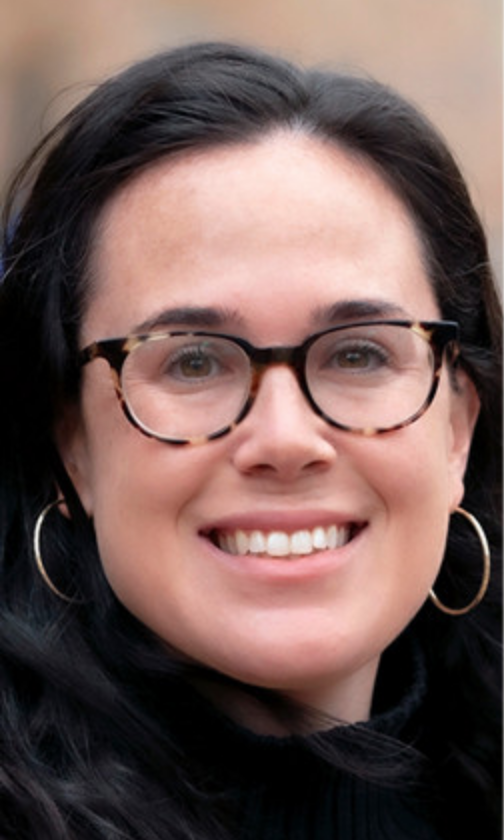Yale’s Arielle Baskin-Sommers wins psychology awards
Psychology and psychiatry professor Arielle Baskin-Sommers wins awards from the Association for Psychological Science and the American Psychological Foundation.

Yale News
Arielle Baskin-Sommers, professor of psychology and psychiatry, has received two awards for her research — the Association for Psychological Science Janet Taylor Spence Award for Transformative Early Career Contributions and the American Psychological Foundation Theodore Blau Early Career Award for Outstanding Contribution to Professional Clinical Psychology.
Both of these awards recognize researchers in the early part of their career who have made transformative contributions to psychological science, an apt description of Baskin-Sommers’ work. Her lab, called the Mechanism of Disinhibition Lab, studies how different cognitive factors lead to disinhibited behaviors, such as impulsivity, aggression and antisocial behavior. Her team uses neurobiology, reports based on census data or crime reports and questionnaires to understand how and why people think and act. She is also the first person in Connecticut to be granted permission to run a lab space in a prison.
“I think that she’s a legend in her department,” said BJ Casey, professor of psychology. “She arrived without having a postdoc, and within a year, she had a lab in one of the prisons in Connecticut. That not only speaks to her ability to get things done but also the respect others have for her. I call her a mythbuster in the sense that she busts myths about antisocial personality and psychopathy.”
For decades, researchers have believed that individuals with psychopathy and other antisocial disorders are incapable of change, but Baskin-Sommers’ research has been challenging that view. One of her studies showed that psychopaths were not actually incapable of fear, as previously believed in the field. Rather, they have difficulty attending to the emotion of fear when it is not their focus.
This, like much of Baskin-Sommers’ work, has groundbreaking implications for the criminal justice system, as it suggests that individuals with psychopathy can be rehabilitated. More broadly, her work focuses on destigmatizing traditionally cast-aside populations, including people with mental illnesses and those with criminal records.
“People are quite stigmatized,” Baskin-Sommers said. “So one of the challenges I like to put on myself is to bring scientific awareness to a variety of people, and one mind at a time challenge some of the misconceptions.”
For Baskin-Sommers, this interest stems from her childhood in Brooklyn, New York. She said that growing up, she “was exposed to lots of different experiences, including dead bodies in my classroom and a lot of other miseries you might associate with criminal behavior.” Seeing these incidences when she was younger led Baskin-Sommers to be interested in studying the interventions and treatments available for people with antisocial disorders.
The science that researchers do has a huge impact on whether the criminal justice system is rehabilitative or punitive and whether treatments positively or negatively impact the person’s life, Baskin-Sommers explained.
“Antisocial behavior is currently lumped together with other conduct disorders, but the treatments are very different,” Casey said. “In psychopathy, what we see is a dampening of emotions which we don’t want to dampen more, so we can do perhaps more harm than good by not using the right treatment. The idea that even the individuals at the most extreme ends of society, psychopaths, can be rehabilitated has tremendous implications for the death penalty and life without parole.”
Lena Chan ’21, a research assistant at the Mechanism of Disinhibition Lab, was drawn to Baskin-Sommers’ widely acclaimed class, “The Criminal Mind,” by this approach of studying the stigmatized without judgement or criticism. This course is one of the most popular psychology classes at Yale, a testament to Baskin-Sommers’ skill as not only a researcher but as a professor and mentor to the next generation of psychology students.
Chan credits Baskin-Sommers, who is Chan’s senior thesis advisor, as being the most influential of all her mentors.
“She’s helped me as a researcher because she starts by asking me what questions I want to ask,” Chan said. “There’s a good balance, giving me the independence to really take the lead on my senior project. I really appreciate her being willing to take an extra step and put in more time and work on her end.”
Baskin-Sommers’ original research methods as a clinical scientist and her work’s clear impact for law and society made her a clear candidate for these awards, according to other professors in her department, including Casey. Chan agreed, saying that Baskin-Sommers’ work will be helpful in improving many people’s lives.
For Baskin-Sommers, the awards are “a way to acknowledge my mentors and the students who worked in my lab,” and said that it reinforces the significance of the work her team is doing.
Last fall, “The Criminal Mind” had a course enrollment of 392 students.
Stephanie Hu | stephanie.hu@yale.edu







